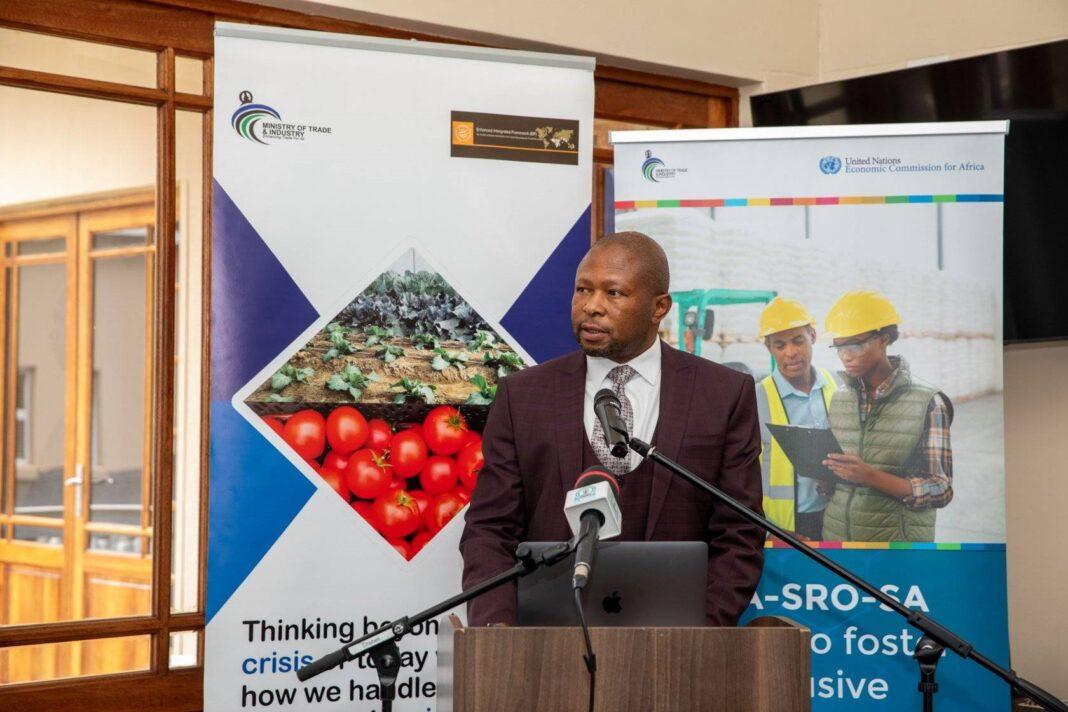Seabata Mahao
Lesotho recently held a two-day regional policy dialogue to explore the sustainability of MSMEs through leveraging local content policies (LCPs) and frameworks in Southern Africa.
The main objective was for regional member states to share experinces in utilising LCPs in supporting developement.
The dialogue also served to assess the alignemnt of regional and national LCPs and frameworks in the region, with a view to finding gaps and how to tackle them.
The dialogue was staged in partnership with the United Nations Economic Commission for Africa (UNECA) Sub Regional Office for Southern Africa (SRO-SA) and the United Nations.
Pokello Mahlomola, the Principal Secretary of the Ministry of Trade said the strategic approach to MSME development must focus on enhancing their survival rates through tailored training programs, facilitating access to information, improving financial accessibility, creating a favourable fiscal policy environment, and assisting in the adoption of modern technology.
“We recognize the slow pace of global economic recovery and the need to address the vulnerable informal job sector, which lacks social protection. Our mission is to achieve inclusive and sustainable economic growth, foster resilient value chains, and promote technology transfer and innovation,†Mahlomola said.
He said the symposium was taking place at a crucial time when Lesotho is facing strategic challenges in the integration process and on the achievement of aims and objectives highlighted in strategies like the Sustainable Development Goals (SDG 8 and 9) respectively.
UNECA’s Olayinka Lawal Bandele, said an increasing number of countries have introduced or reinforced their LCPs with a view to stimulate the use of local factors of production, such as labour, capital, supplies of goods and services, to create value in the domestic economy and hence expand the industrial sector.
She added that there is a need to explore how the application of LCPs can practically benefit the economies and attain inclusive industrialisation. She noted that there are a number of opportunities that are accruing to the utilization of LCP and frameworks.
“As a region, we need to see how these opportunities can translate into increased competitiveness of our domestic economies, including stronger integration across all sectors.
“In Africa LCP is significantly utilized in the mining, gas and oil sectors, mainly through mandatory legal obligations requiring the fulfilment of certain requirements,” she said.
She said delivering on successful LCPs and their supporting regulatory framework has the potential to support the export diversification, import substitution, an improved national foreign exchange position and therefore debt sustainability,†Bandele explained.
The dialogue was attended by 11 member states of SRO-SA from relevant government ministries, departments and agencies on industry, trade, and international non-governmental organisations, gender experts from UNECA, the academia and UN.
According to ECA Sub-regional Office for Southern Africa, a study by the consulting firm McKinsey this year, 90 percent of resource-rich countries apply one form of LCP, or another aimed at developing and deepening economic linkages between the extractives sector and the rest of the economy.
A study by the World Bank in 2023 found that LCPs can increase access to finance for MSMEs by up to 20 percent.
In 2021 the International Labour Organisation reported that local content policies can improve the skills of MSMEs by 15 percent. In addition, the African Development Bank notes that, local content policies can increase access to markets for MSMEs by up to 10 percent.




